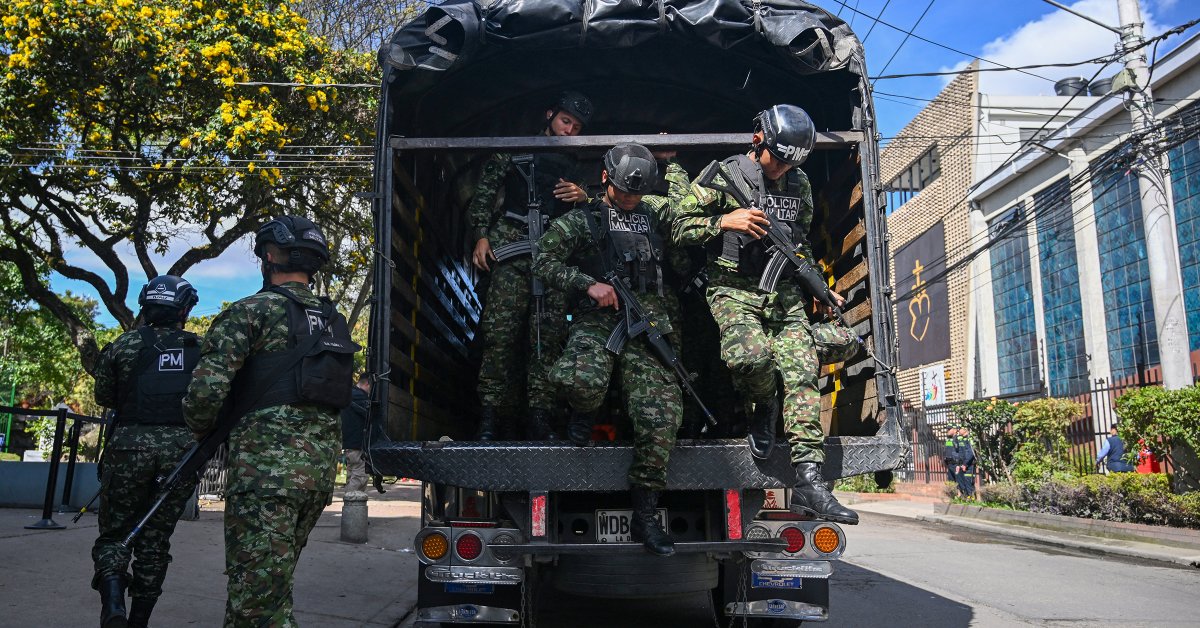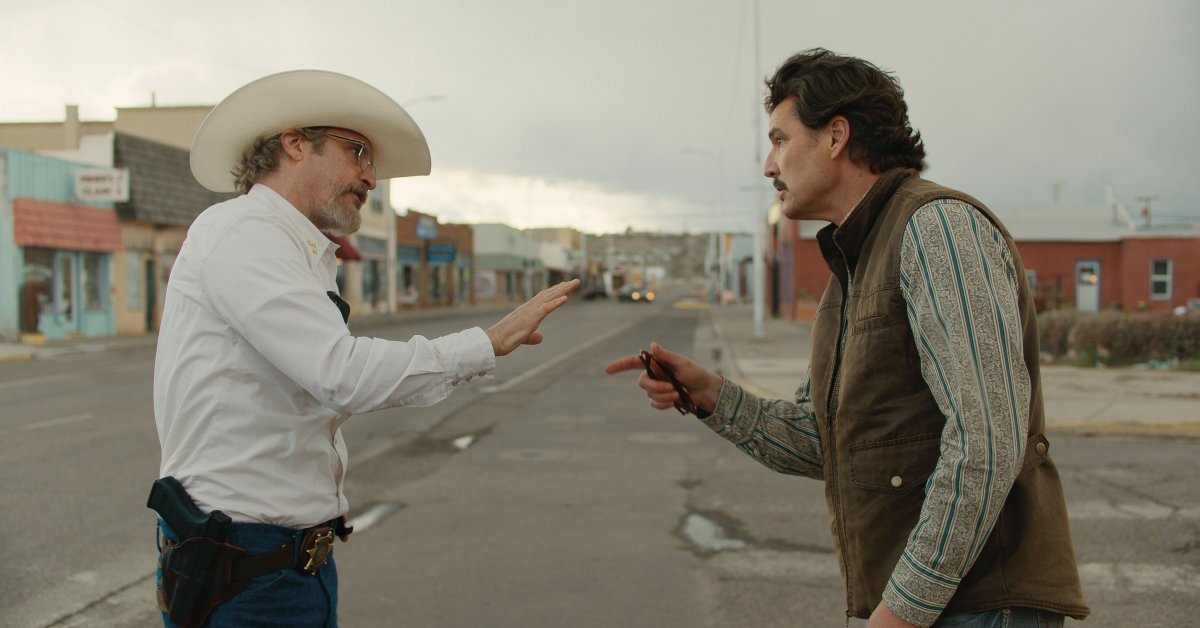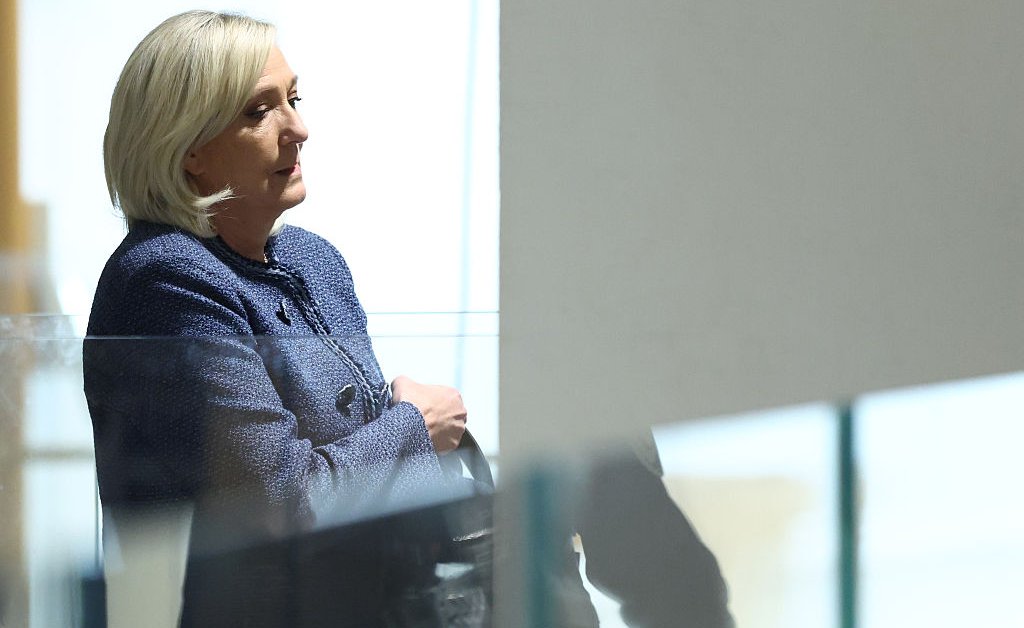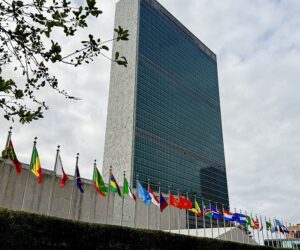Crime and violence were already on the upswing in Colombia before the 39-year-old presidential candidate Miguel Uribe was shot at a campaign rally in Bogota in June. And 10 days after he died from his wounds on Aug. 11, two separate criminal groups exploded a car bomb outside the air force base in Cali and downed an army helicopter with a drone; at least 18 people were killed, civilians and army officers.
The violence has raised the spectre that after more than two decades of security gains in Colombia, the country that once led the world in per capita murders and kidnappings may be quickly sliding back into chaos. Yet Colombia is not unique. There are growing public concerns from Mexico to Chile about the failure to address violent crime, and it is undoing leftist governments across Latin America and boosting increasingly autocratic right-wing ones.
Take the case of Nayib Bukele’s El Salvador. Before the self-proclaimed “world’s coolest dictator” won office in 2019, his country had one of the highest murder rates in the world. Bukele initiated a state of emergency, built the infamous CECOT where the Trump Administration has been sending undocumented immigrants, and cracked down on criminal gangs. Today El Salvador’s murder rate is among the lowest in Latin America, and Bukele’s approval rating stands at 85%.
Yet there are steep costs to his approach. One is that there are more than 70,000 people in prison—a staggering 2% of the population—many yet to be indicted let alone tried. Another is that the 44-year-old Bukele—now armed with a supermajority in Congress and a Supreme Court packed with allies—has amended the constitution to allow for the indefinite re-election of the President, presumably him.
The Latin American left needs an alternative model, unless it plans to continue ceding ground to the right.
The region’s left politicians have an understandable distrust of the police and military, having suffered under their heavy-handed tactics during the dictatorships in Argentina, Brazil, Chile, and elsewhere during the latter half of the 20th century. But responding to rising crime demands a security response. Alternative measures have failed so far. In Mexico, former leftist President Andrés Manuel López Obrador’s “hugs not bullets” sought to address the socioeconomic roots of crime. But the murder rate spiked during his six-year term.
In Ecuador, former President Rafael Correa—again of the left—kicked out the U.S. anti-narcotics air force base in Manta in the late 2000s. Partially as a result, the once-peaceful country has become the world’s main transshipment hub for cocaine and a wave of gang-related violence has followed. That includes the execution of presidential candidate Fernando Villavicencio in 2023 and TV journalists being held at gunpoint on live TV in early 2024, prompting a state of siege by interim and later elected President 37-year-old Daniel Noboa. Noboa has cited Bukele as his model.
In Chile, another leftist, President Gabriel Boric, has endured broad criticism over his government’s inability to address the country’s rising murder rate. Crime has become a top voter concern and conservative José Antonio Kost is leading the polls with a predictable tough-on-crime message ahead of elections in November.
Which brings us back to Colombia and its current President. The leftist Gustavo Petro’s original promises to negotiate “total peace” was naïve at best, dangerous at worst. His ambition was to extend the 2016 peace deal with the Revolutionary Armed Forces of Colombia (FARC) to remaining militant groups, many of them now running criminal operations. Predictably, the plan didn’t work.
These failures have only made Bukele’s crackdown seem like the more attractive approach to both the citizens concerned about insecurity and ambitious politicians on the right. The risk is that the Bukele model, with all its grave human rights implications, becomes the flavor of the month as elections come up in Chile, Colombia, and elsewhere.
What’s more, U.S. President Donald Trump has repeatedly demonstrated his favoritism toward tough-on-crimes leaders. The Trump Administration will likely back right-wing candidates over the next two years in Brazil, Chile, Colombia, and Honduras while supporting existing governments in El Salvador and Ecuador.
Lost will be U.S. objectivity in its traditional backdoor and a more human rights-friendly rule of law to citizens. But first there needs to be an alternative. So far we are waiting.








